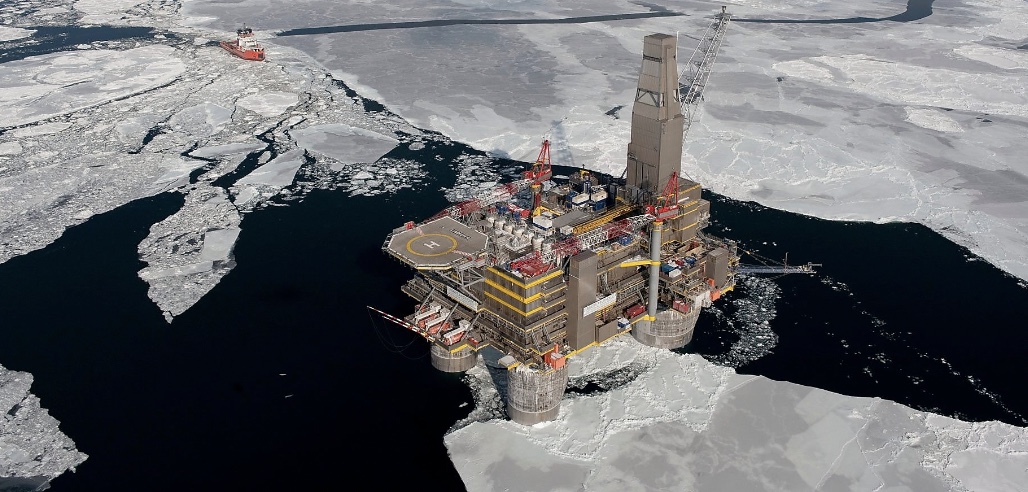Russia is moving to "downsize" a natural gas joint venture, putting its investments at risk Shell and two Japanese energy companies.
A decree issued last Thursday by the president Vladimir Putin it concerns the Sakhalin-2, a project in the Russian Far East that serves as an exporter of liquefied natural gas to Japan.
The Kremlin's decision has raised many concerns in Japan. Gazprom holds 50% control in Sakhalin-2, followed by Shell with 27,5%, e Mitsui e Mitsubishi, two Japan-based energy companies with shares totaling 22,5%.
The decree provides that a new company will take over Sakhalin-2 and that the three foreign investors have one month to ask the Russian government to keep their stake in the new venture.
Shell, a month ago, said it wanted to abandon its stake in the joint venture, following sanctions imposed on Russia, although last Friday it said it was "weighing" carefully the implications of Russia's move.
However, Shell has already written off $ 1,6 billion worth of Sakhalin-2.
Putin's decision comes for the first time on an international project since he invaded Ukraine last February.
Russia in the past has favored foreign companies for their involvement of capital and technology, while always maintaining corporate control.
Shell pioneered the development of Sakhalin-2, which is headquartered on Sakhalin Island in the Pacific and was Russia's first liquefied natural gas plant, shipping its first cargo to Japan in 2009.
However, the implementation of the project has always been complicated as the extraction site is remote and rugged and the gas has to be conveyed from the icy waters off the northern coast of the island to a liquefaction and export terminal in the warmer sea to the south.
Shell originally had a majority stake, but was targeted by Russian authorities on charges of environmental violations.
In 2007, Shell and its Japanese partners succumbed to pressure to sell company shares in favor of full control of Gazprom.
Putin could go the same way with another project on the island, the Sakhalin-1 pipeline. The property was managed by Exxon Mobil, which has a sizable minority stake and, like Shell, also said it is pulling out of the partnership with Russia. In recent months, oil exports from the plant have dropped dramatically.
In June, no tankers withdrew crude oil from the facility compared to a previous average of about one ship every three days, said Viktor Katona, an analyst at Kpler, an oil transportation company.
Putin's new decree will do no immediate damage to Shell which recorded a record profit of $ 9,1 billion for the first quarter of this year due to high oil and gas prices.
The Kremlin may, however, announce other strong measures against Western oil companies that still have resources in Russia.
Last May, Shell sold its service stations in Russia to Lukoil, a privately held Russian company. If it gives up Sakhalin-2, Shell will also lose its share of liquefied natural gas exported by the project, which amounts to approximately 5% of the company's global LNG.
According to Alexander McColl, Bernstein's analyst, the loss of Sakhalin 2 "did not change the rules of the game " for Shell although the main concern would be the maintenance of a regular flow of fuel supplies from Sakhalin-2 to Japan and other countries in the region
The facility could continue to operate under its new ownership, but not having an LNG operator like Shell to work with Gazprom won't help smooth delivery of the hydrocarbon, McColl said.
Both Mitsui and Mitsubishi have said there has been no impact on Sakhalin-2 production so far.
Sakhalin-2 is of great importance to Japan, as it supplies around 8% of the country's liquefied natural gas, a pillar of the energy industry in recent years that was already under pressure. After the Fukushima nuclear fusion in 2011, Japan adopted liquefied natural gas as a cleaner fuel than coal and safer than nuclear power.
About a third of Japan's electricity now comes from power plants that burn LNG.
In recent months, however, prices have soared as Japanese buyers have found themselves in competition with utilities in Europe struggling to make up for gas shortages from Russia.
After Western oil companies announced their intention to leave Russia after the invasion of Ukraine, the prime minister Fumio Kishida said Japan cannot afford to withdraw from Sakhalin-2, which he described as "extremely important for Japan's energy security ".
After Putin's decree which also wants to take over Japanese companies, however, Kishida said that the government must keep "a watchful eye on the type of requests " that the new agreement could entail.
